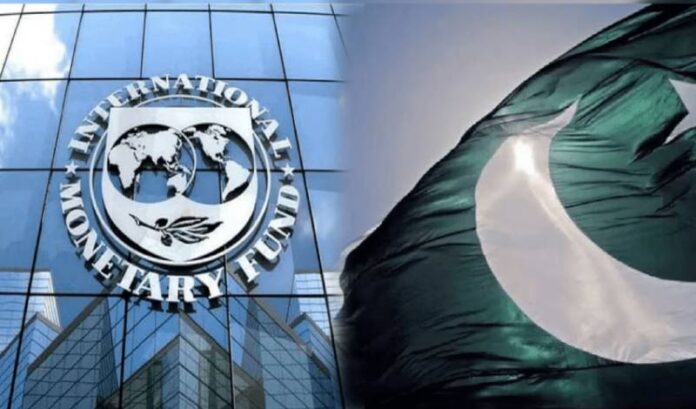The Executive Board of the International Monetary Fund (IMF) has concluded the first review of Pakistan’s economic reform program, a significant milestone in the country’s journey toward financial stability. The Board’s approval paves the way for an immediate disbursement of SDR 528 million (approximately US$ 700 million), marking the second tranche under the IMF’s Stand By Arrangement (SBA).
With this latest approval, the total disbursements extended to Pakistan under the SBA now reach a substantial US$ 1.9 billion. The IMF’s ongoing support underscores confidence in Pakistan’s commitment to implementing crucial economic reforms, aligning with the objectives set forth in the reform program.
This injection of funds is anticipated to provide a substantial boost to Pakistan’s economic initiatives and aid in addressing various fiscal challenges. The disbursement reflects a collaborative effort between Pakistan and the IMF, working towards the common goal of fostering economic resilience and sustainability in the region.
Following the Executive Board discussion, Antoinette Sayeh, Deputy Managing Director and Chair said, “Pakistan’s program performance under the Stand-By Arrangement has supported significant progress in stabilizing the economy following significant shocks in FY2022-23. There are now tentative signs of activity picking-up and external pressures easing. Continued strong ownership remains critical to ensure the current momentum continues and stabilization of Pakistan’s economy becomes entrenched.”
“The authorities’ strong revenue performance in FY24Q1 as well as federal spending restraint have helped to achieve a primary surplus in line with quarterly program targets. However, in the context of pressures, including from provincial spending, efforts at mobilising revenues and ongoing non-priority spending discipline need to continue to ensure that the budgeted primary surplus and debt goals remain achievable, he said.
Going forward, broad-based reforms to improve the fiscal framework—mobilizing additional revenues particularly from non-filers and under-taxed sectors and improving public financial management—are required to create fiscal space for further social and development spending, he added.
“The authorities took challenging steps to bring both electricity and natural gas prices closer to costs in 2023. Continuing with regularly-scheduled adjustments and pushing cost-side power sector reforms are vital to improving the sector’s viability and protecting fiscal sustainability.”
Sayeh further said that inflation remains high, affecting particularly the more vulnerable, and it is appropriate that the SBP maintains a tight stance to ensure that inflation returns to more moderate levels. Pakistan also needs a market-determined exchange rate to buffer external shocks, continue rebuilding foreign reserves, and support competitiveness and growth. In parallel, further action to address undercapitalized financial institutions and, more broadly, vigilance over the financial sector is necessary to support financial stability.
“Boosting jobs and inclusive growth in Pakistan requires continuing protection of the vulnerable through BISP and accelerating structural reforms, most notably around improving the business environment and leveling the playing field for investors, advancing the SOE reform agenda and safeguards related to the Sovereign Wealth Fund; strengthening governance and anti-corruption institutions; and building climate resilience.”
Pakistan faced significant fiscal challenges before the board review. However, by rationalizing the gas subsidies and increasing the direct taxes on energy and fuel, Pakistan was able to pass the IMF review. Analysts suggest that the third and final tranche of the IMF SBA will be received by the next elected government as per the election schedule after a second review by the IMF board.
Talking to Profit, CEO Topline Securities Muhammad Sohail said that, “IMF funding along with recent inflows from multilateral lenders will further help Pak Rupee that is fairly stable since the last few months.”
He further added that “This new tranche will also help in getting rollovers from few friendly countries and will ease external debt repayment pressure.”





Great article! I think this is one of the best articles ever written.
This is a valuable and informative post, thanks for sharing.
MY PERSONAL EXPERIENCE ON LOST CRYPTO RECOVERY!
I read so many stories about bitcoin loss to scams. I will like to start by saying the agencies responsible for bitcoin security has really done nothing to help locate stolen or lost coins. In my situation my MacBook was hacked by someone that had access to my emails, i immediately contacted blockchain and they only wasted my time, after which i worked towards getting help else where, i was referred to consult a bitcoin expert who helped track and retrieved my 3.3 btc, for an agreed fee. I was more than grateful and willing to pay more after the job was done. Thankful i didn’t fall victim and would like to recommend ( MORRIS GRAY 830 @ G maiL . COM )
Hey everyone! I just wanted to share my amazing experience with this reliable hacker who helped me get my scam bitcoin back! He was super effective and trustworthy. I’m so grateful for your help! Highly recommend at onlinerecoveryconsultants AT Gmail.com true lifesaver.